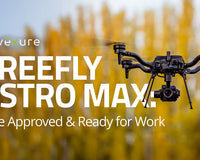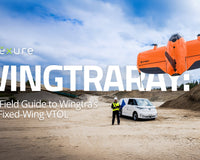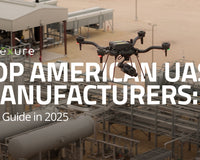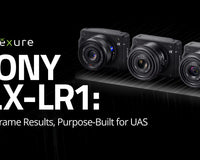Hog Hunting with Drones
The surge of feral hog populations across the United States has posed significant ecological and agricultural challenges. As traditional hunting methods grapple with this rapidly growing issue, a new player enters the field – drones. Equipped with technology like thermal imaging, drones are transforming the landscape of hog hunting, making it more efficient, safer, and, in many ways, more effective.
This technological leap, however, isn’t without its challenges and controversies. Introducing drones in hunting has sparked debates on ethics, wildlife conservation, and legalities. The balance between effective management of invasive species and responsible wildlife interaction stands at the forefront of these discussions.
In this article, we will explore the implications of using drones for hog hunting, offer insights into choosing the right equipment, and navigate the complex legal landscape, mainly focusing on states like Texas, where hog hunting has deep-rooted cultural and ecological significance.

Hogging the Land & Ecosystem
Feral hogs, an invasive species in the United States, have significantly impacted the environment and the economy. Initially introduced as a food source and for sport hunting, they have now proliferated across at least 30 states, with estimates of their numbers ranging from 6.5 to 9 million.

This rapid expansion has resulted in damages and control costs of up to $2.5 billion annually. Feral hogs cause extensive agricultural damage, disrupt ecosystems, and pose health risks. Effective management, including hunting, is essential to control their population and mitigate their impact. Approaches vary across states, with some focusing on eradication and others on population control. The challenge is complex, requiring coordinated efforts at both state and federal levels.
Drones for Hog Hunting: Where to Start?
Local Laws and Regulations
It's crucial to be aware of and adhere to the specific laws governing drone use in hunting, as they vary by state. As of 2023, only a few states in the United States allow using drones for hunting. Each state has its own set of rules and limitations regarding drone use in hunting activities. For a comprehensive list of states where drone use is illegal, please read our article on The Complex Landscape of Drone Deer Recovery.
For example, some states allow drones for scouting only, not during the actual hunt, while others have more stringent restrictions. Always check both federal and state regulations before using a drone for hunting.
Choosing the Right Equipment
For effective scouting, Advexure recommends aircraft like the Mavic 3 Thermal with the JZ T30 Spotlight, Matrice 30T with the JZ T60 Spotlight, or the EVO Max 4T. These models are equipped with features such as thermal imaging, rapid deployability, and good flight times, which are crucial for spotting hogs, particularly at night.
In general, look for drones that are compact, have a high-capacity battery, have a thermal sensor, and can operate in various weather conditions.
Aside from spotting or scouting hogs, hunters have also reported that prop noise from drones have also been effective at herding hogs.
Your Drone is not a Weapon
It is important to note that while drones can be used for locating and tracking hogs, Federal law prohibits using drones for direct hunting or taking down these animals, so don't attach guns to your drones. Seriously, this is just common sense.
Drone Registration and FAA Regulations
All drones used in hunting must be registered with the Federal Aviation Administration (FAA), and hunters must comply with FAA regulations. This includes keeping the drone within the line of sight, adhering to altitude restrictions, and not flying in restricted areas.
Ethical Considerations and Wildlife Disturbance
While drones offer an advantage in hog hunting, they should be used ethically and responsibly. This includes avoiding unnecessary disturbance to wildlife and minimizing noise pollution.
Compliance with Aerial Management Permits
Hunters using drones to locate hogs must comply with aerial management permits. These permits are part of the regulatory framework ensuring that drone use in hunting aligns with broader wildlife management and conservation goals.
Everything’s Bigger, Including Hog Populations

In Texas, recent legal changes have opened up new possibilities for using drones in hog hunting, but with specific limitations and requirements to ensure responsible hunting and wildlife management.
Legalization for Locating Hogs in Texas
In Texas, recent legal changes have opened up new possibilities for using drones in hog hunting, but with specific limitations and requirements to ensure responsible hunting and wildlife management.
State and Federal Laws
Hunters should be aware of both state and federal laws regarding drone use. While Texas law permits using drones for hog hunting under specific conditions, federal laws and FAA regulations also apply and must be adhered to.
Responsible wildlife management is key. Ensure that your hunting practices contribute positively to the control of invasive species without harming the ecosystem.
Going Hog Wild with Drones
Integrating drones into hog hunting represents a significant advancement in wildlife management. Using drones, especially with thermal, offers a unique and practical approach to dealing with the burgeoning feral hog population in the United States. These innovative tools allow hunters to cover vast areas more efficiently, track hogs more accurately, and conduct hunts with enhanced safety.
However, hunters must navigate this new terrain with a clear understanding of both the legal and ethical implications. State-specific laws, particularly in Texas, highlight the importance of using drones responsibly and within the bounds of regulatory frameworks. Compliance with aerial management permits, drone registration, and FAA regulations is a legal requirement and a commitment to ethical hunting practices.
Whether you're seeking information on the latest drone technology or need expert advice on the best equipment for your specific use case, Advexure is here to help. Reach out to our team of drone experts today.










